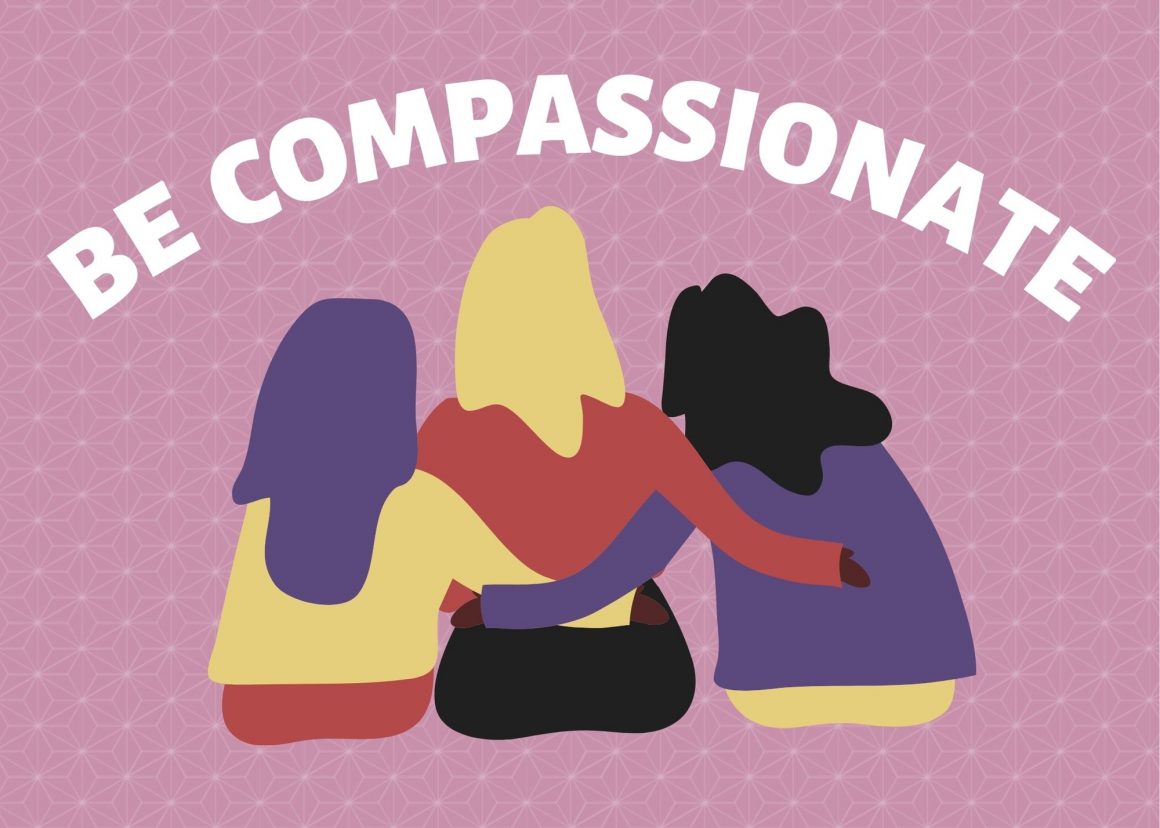
Bell Let’s Talk workshop on self-compassion
By Luis Armando Sanchez Diaz, February 7 2022—
On Jan. 27, the University of Calgary was part of Bell Let’s Talk Day by holding various events including a workshop on Self-Compassion by Homewood Health, as part of the Campus Mental Health Strategy. The event was delivered by workshop facilitator and U of C alumna Ronaye Coulson, who is a certified psychologist.
Self-compassion was defined by Coulson as the “tendency that we have towards our human family to others — people that we care about and being able to show that to ourselves.”
Coulson presented ideas and information related to Dr. Kristen Neff’s book on self-compassion and stressed that people can encounter barriers when beginning their journey exploring and practicing self-compassion, as it is a process that takes time and is not easy either to achieve or to develop.
“Sometimes when we start learning and start exploring self-compassion, there can be a little bit of a paradox called effect that happens when we have a bit of a resistance to it or a little bit of a reaction to it,” she said.
Moreover, the workshop host expressed that people usually are not aware of being compassionate with themselves daily.
“Generally, in our lives, we may or may not have it in the forefront of our awareness that we need to show ourselves kindness, patience and compassion,” she said.
According to Neff’s book, when people feel compassion towards others, individuals can notice that others may be suffering and acknowledge that humans make mistakes, as well as start being more understanding of their situation — instead of judging them.
The event was delivered via online format given the current COVID-19 restrictions. However, throughout the event there was constant engagement and communication between the speaker and participants through polls and the chat feature.
Furthermore, Coulson referenced a conference given by Neff in 2014, in which she stated that “she believes that there’s really no difference between compassion for ourselves versus compassion for others. And she always identifies these three main components, self-kindness versus self-judgment. The second is very common humanity versus isolating ourselves. And then the last one is mindfulness, an awareness of what is showing up, versus an over-identification of it.”
Coulson also said that there are different factors that determine our self-compassion.
“It’s a combination of experiences. But, that is a practice that we can take on, that we can start to use — is a muscle that we can build.”
Coulson indicated that Homewood Health services are free and confidential and encourage individuals to seek support when they need it. Also, she highlighted that at the organization, there are various services available such as counselling programs, e-learning courses as well as short-term phone coaching programs.
At the end of the session, Coulson read a quote from Teri Branch.
“Feeling compassion for ourselves in no way releases us from responsibility for our actions. Rather, it releases us from the self-hatred that prevents us from responding to our life with clarity and balance,” read the phrase.
After the event, participants received handouts about the topic and materials to exercise their comprehension and understanding of self-compassion, as well as question sheets to reflect and think about how they can apply it in their lives.
Team Lead for WellBeing and WorkLife in Staff Wellness at the U of C Michele Moon shared that post-doc students, faculty and staff members can have access to various services provided by Homewood Health through the Employee and Family Assistance Program. On the other hand, undergraduate students can have access to multiple mental health services provided by the U of C through the Student Wellness Services such as the After Hours program.
Moon, who also oversees the Campus Mental Health Strategy Implementation Advisory Committee as co-chair, encouraged members to take care of their mental health and wellbeing as well as to use the mental health resources available at the U of C.
“I encourage all members of our UCalgary community — students, post-docs, faculty and staff — to invest attention and time in their mental health and wellbeing, much like we invest in our dental health or physical health. Whether that means practicing Self-Compassion or reaching out to peers, friends, family or professionals for support when we need it,” she said. “Our Campus Mental Health Strategy is a commitment to creating a caring campus community where folks can access support when they need it.” Moon finalized.
Make sure to check out Dr. Neff’s website on self-compassion. To learn more about the U of C Mental Health Strategy online. Visit the Wellness Services webpage to know more about resources you can access.
